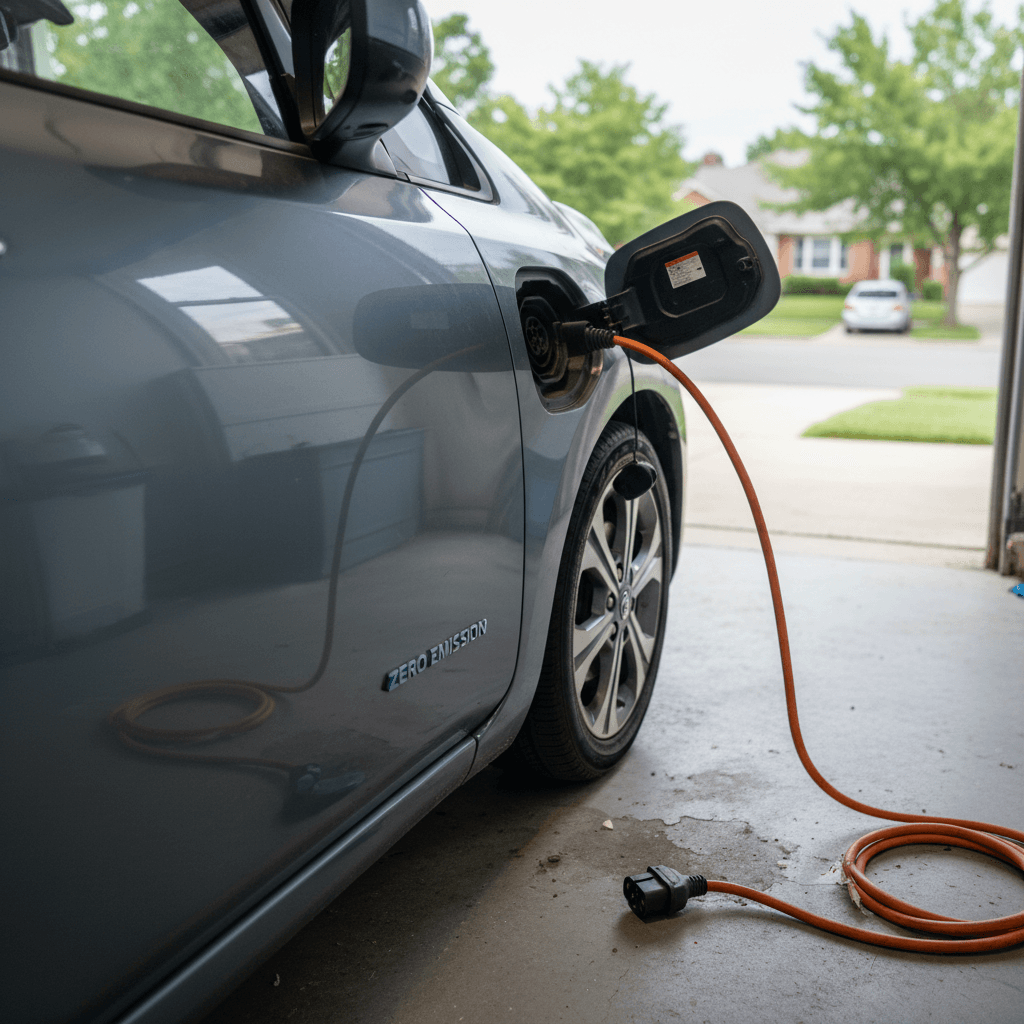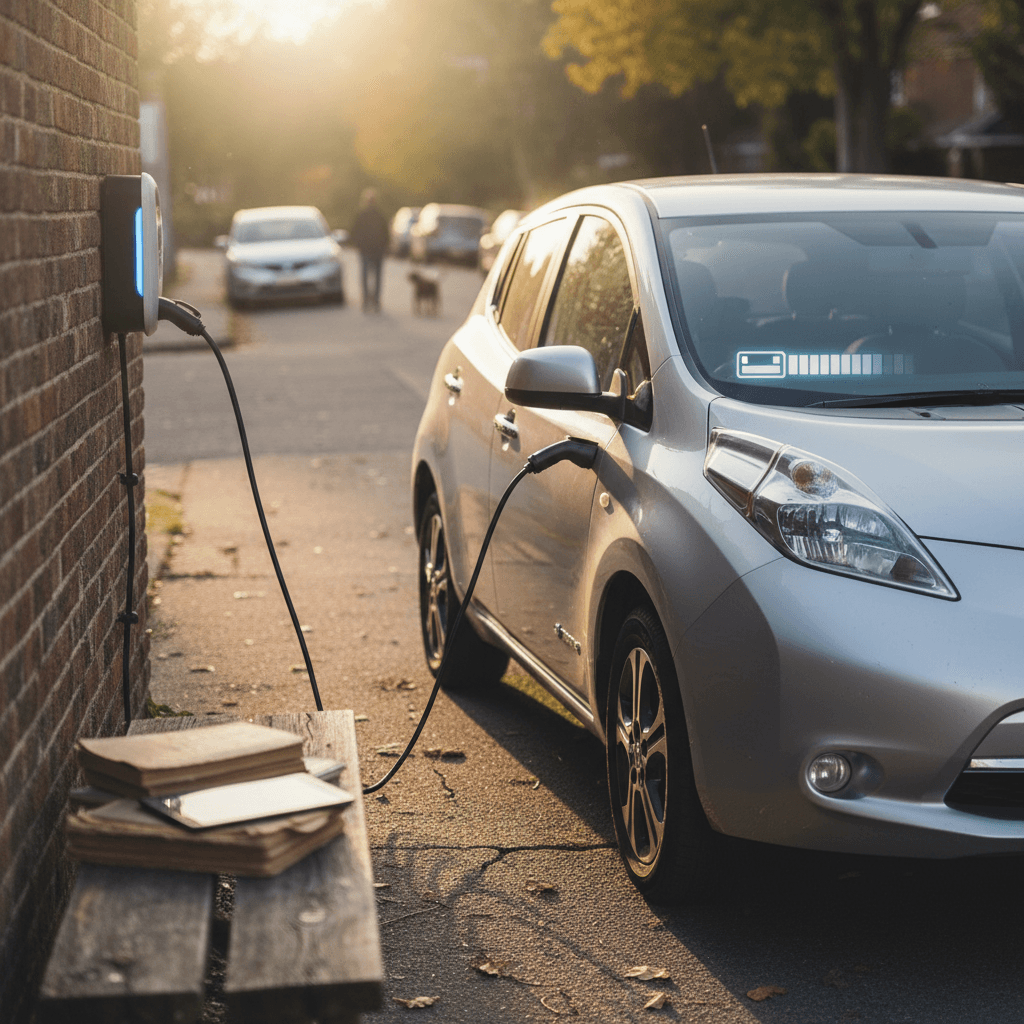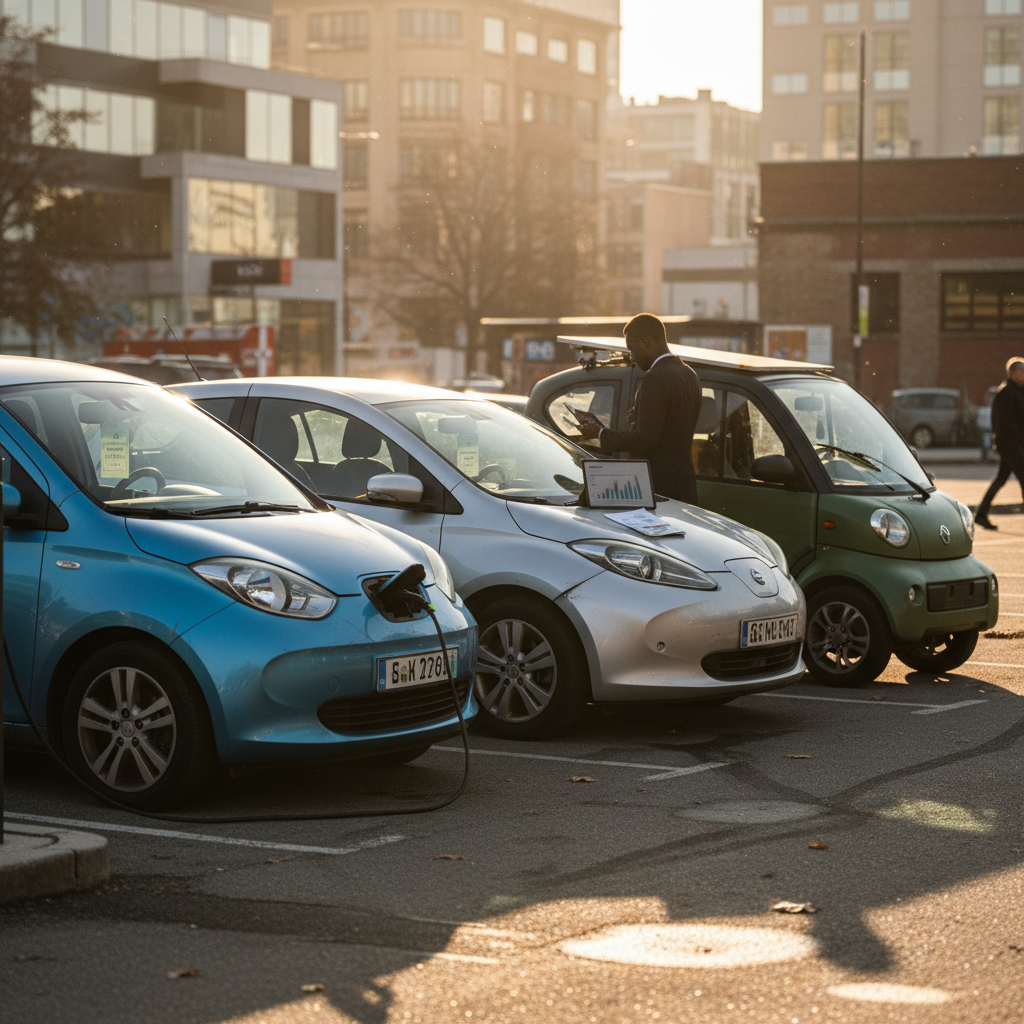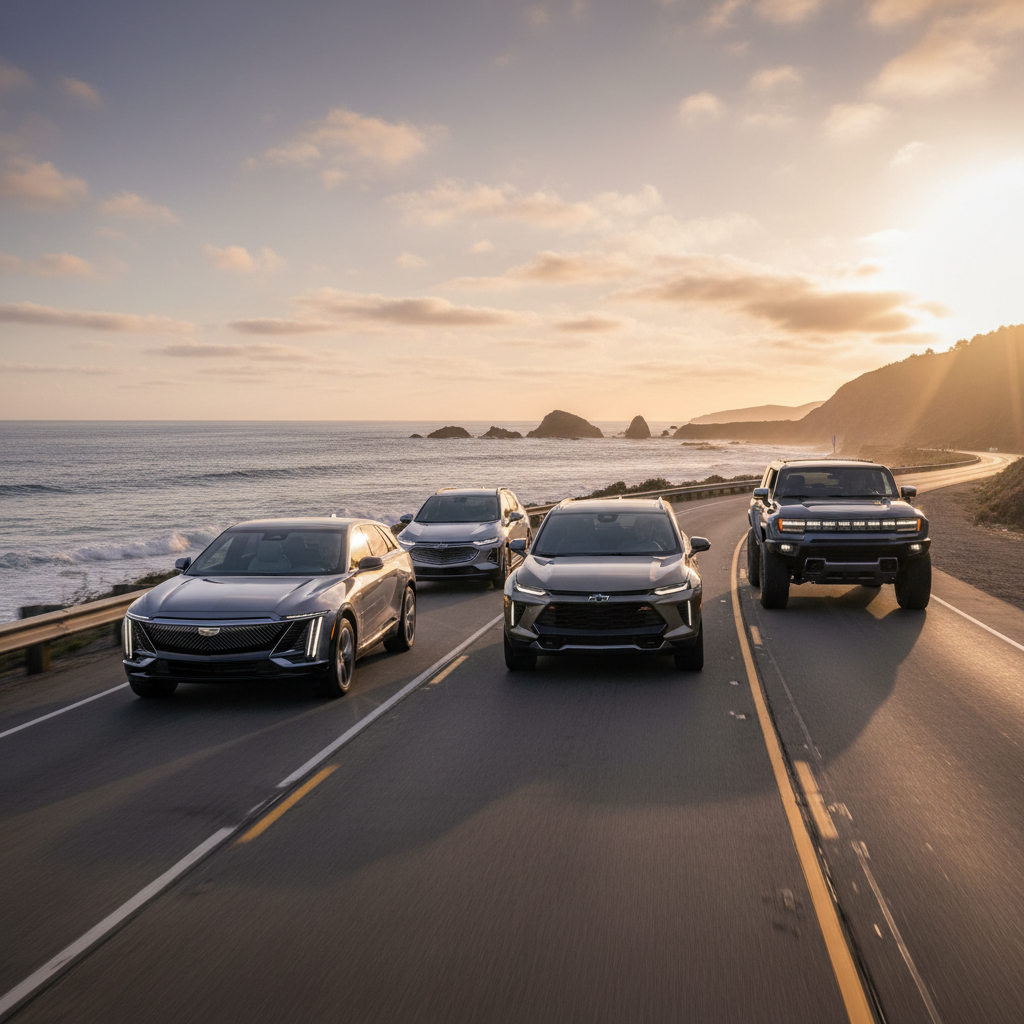If you’re hunting for a Nissan Leaf for sale, you’re probably trying to answer two questions: “Will the range actually work for my life?” and “How worried should I be about the battery?” The Leaf is one of the most affordable ways to get into an electric car, but it’s also one of the easiest to get wrong if you don’t know what you’re looking at.
Leaf at a Glance
Why the Nissan Leaf Still Makes Sense in 2025
The Leaf was one of the first modern EVs, and today it’s often the cheapest used electric car you’ll find. That’s not because it’s a bad car; it’s because newer EVs arrived with bigger batteries and faster charging, pushing Leaf prices down. If your daily driving is mostly commuting, errands, and school runs, a well-chosen Leaf can be a quiet, simple, and very low-maintenance partner.
What a Used Nissan Leaf Does Well
Where the Leaf shines compared with gas cars and some newer EVs
Affordable Entry to EVs
Used Leafs routinely undercut comparable used EVs. Earlier model years can be priced like an economy hatchback, while still giving you an automatic transmission feel and smooth electric power.
Great for Short Commutes
Even an older Leaf with reduced range can be perfect if you drive under 40–50 miles a day. You’re trading road-trip ability for low running costs and quiet around-town driving.
Low Operating Costs
No oil changes, fewer moving parts than a gas engine, and cheap home charging add up. For many owners, the biggest cost variable is electricity price, usually far less volatile than gasoline.
Where the Leaf Falls Short
Nissan Leaf Generations, Batteries, and Real-World Range
Before you click on any ad for a Nissan Leaf for sale, you want a feel for how the different model years stack up. The two big levers are battery size and EPA-rated range, a bigger, newer battery generally means a car that still works for modern driving.
Nissan Leaf Batteries and EPA Range by Era
Approximate EPA-rated ranges when new. Real-world used range depends heavily on battery health, climate, and driving style.
| Model Years | Battery (kWh) | Approx. EPA Range When New | Typical Use Case |
|---|---|---|---|
| 2011–2015 | 24 kWh | 73–84 miles | Short in-town errands, very short commutes |
| 2016–2017 | 24 or 30 kWh | 84–107 miles | Better for moderate commutes with careful planning |
| 2018–2022 (Leaf) | 40 kWh | 149–151 miles | Most daily commuters, suburban use |
| 2019–2022 (Leaf Plus/e+) | 62 kWh | 212–226 miles | Longer commutes, light road trips |
| 2023–2024 (S/SV) | 40/60 kWh | 149 / 212 miles | Simplified lineup with similar ranges |
| 2020–2024 refresh | 40 kWh | 149 miles | The "newest" classic Leaf before the 2026 redesign |
Use this table to narrow your search to Leaf model years that fit your daily mileage.
The Sweet Spot for Most Buyers

Does a Leaf’s Range Fit Real Life?
How Much Should You Pay for a Used Nissan Leaf?
Used Leaf pricing is all over the map because it depends on local incentives, battery health, and how nervous sellers are about EVs. Instead of memorizing dollar amounts that change every month, think in tiers based on battery, age, and condition.
Budget Commuter Tier
Older 24 kWh cars (2011–2015) and some early 30 kWh cars live here. They’re usually the lowest-priced Leafs on the market.
- Best for: short in-town errands, second-car duty.
- Avoid if: you regularly need more than 40–50 miles per day.
- Key question: How many battery capacity bars remain?
Modern Daily-Driver Tier
2018+ 40 kWh Leafs and 2019+ 62 kWh Leaf Plus models sit in the sweet spot for value, range, and features.
- Best for: primary commuting car, school runs, weekend trips with charging.
- Pay more attention to: battery health reports, fast-charging history.
- Worth paying extra for: clean history, remaining battery warranty, verified range.
Don’t Chase the Rock-Bottom Price
Battery Health: The Make-or-Break Factor
On a used Leaf, battery health is everything. The car itself is simple and robust; it’s the battery that separates a bargain from a future headache. The Leaf uses a simple air-cooled battery design, which keeps costs down but can mean more degradation, especially in very hot climates or on cars that fast-charge a lot.
How to Judge a Leaf’s Battery Before You Buy
1. Look at the Capacity Bars
The gauge on the right side of the dash shows 12 bars when new. Each missing bar represents a chunk of lost capacity. A Leaf with 9 or fewer bars has likely lost a significant amount of its original range.
2. Ask for a Professional Battery Test
A quick dashboard look is not enough. Ask for a recent battery health report from a Nissan dealer or an independent EV specialist. On Recharged, every Leaf includes a <strong>Recharged Score</strong> with verified battery diagnostics, so you’re not guessing.
3. Consider Climate and Use History
Cars that spent their lives in very hot regions or were used heavily on DC fast chargers can show more degradation. A cooler-climate commuter that charged mostly at home is usually a safer bet.
4. Check Remaining Battery Warranty
Many Leafs carried an 8-year/100,000-mile battery warranty and separate capacity coverage early in life. Even if the warranty is nearly up, a car that’s still under coverage today probably had a relatively gentle life.
5. Do a Real-World Range Test
If you can, do a long test drive on your typical routes. Start near 100% charge, drive normally, and see how quickly the state of charge drops. Compare that with the original EPA range for that model year and battery size.

How Recharged Handles Battery Uncertainty
Charging, Commuting, and Whether a Leaf Fits Your Life
The Leaf is at its best when you can charge at home or work and you’re not relying on public fast charging every day. Earlier models use CHAdeMO quick-charging, which is slowly disappearing in favor of newer standards. That doesn’t make the car unusable, but it nudges you toward using Level 2 charging as your primary fuel source.
Common Leaf Owner Scenarios
Where a used Nissan Leaf fits beautifully, and where it doesn’t
Garage or Driveway Charging
If you can install or already have a 240V Level 2 charger, owning a Leaf feels like owning a smartphone, you plug in at night and leave with a “full tank” every morning.
Apartment or Workplace Charging
If your building or office has Level 2 charging, a Leaf can still work well. Just make sure those stations are reliably available and not constantly blocked or full.
Frequent Road-Tripper
If you regularly drive hundreds of miles in a day, especially across areas with limited CHAdeMO support, a Leaf is not ideal. In that case, consider a newer EV with CCS or NACS fast charging and larger range.
Think in Daily Miles, Not Just EPA Range
Recalls, Safety, and Long-Term Reliability
Mechanically, the Leaf has a strong reliability record: no engine, no transmission, and fewer wear items than a traditional gas car. But you should still be aware of recalls and battery-related service campaigns, especially on newer Leafs.
Recent Battery-Related Recalls
- Check the vehicle’s VIN against NHTSA’s recall database or ask the seller for proof of completed recall work.
- Review the car’s service history for battery-related updates or capacity warranty claims.
- Inspect brakes, tires, and suspension just as you would on any used car, EVs still need good rubber and solid brakes.
“On a used Leaf, the battery pack is the powertrain and the fuel tank. If you understand its health and history, the rest of the car is usually straightforward.”
Shopping Checklist for Any Nissan Leaf for Sale
Quick Checklist Before You Make an Offer
Confirm Model Year and Battery Size
Don’t rely on the ad headline. Verify whether the car has a 24, 30, 40, 60, or 62 kWh battery. This single detail sets your expectations for range and price.
Get a Real Battery Health Report
Ask for a current battery diagnostic from a Nissan dealer or EV specialist. If the seller can’t or won’t provide it, treat that as a red flag, or consider buying through a platform that includes independent testing.
Check Remaining Warranty and Recalls
Look up battery and corrosion warranties based on year and mileage, and confirm all recall work has been completed, especially for 2019–2022 cars.
Look for a Clean, Transparent History
Review accident history, title status, and service records. A clean title and straightforward ownership trail are especially important for any EV with an expensive battery pack.
Test Real-World Range on Your Routes
Drive the car on your actual commute route if possible. Watch how fast the state of charge drops and how it feels to live with that range.
Plan Your Charging Setup
Before you sign, know exactly where and how you’ll charge, home Level 2, workplace, public chargers, so the car’s range lines up with your real life.
Why Buy a Used Nissan Leaf Through Recharged
You can absolutely find a Nissan Leaf for sale through classifieds, auctions, or a neighborhood used-car lot. But a Leaf is not just another hatchback; it’s a rolling battery pack with software, range, and fast-charging quirks. That’s where a specialist marketplace makes a difference.
How Recharged Simplifies Buying a Used Leaf
What you get when you shop for a Leaf on Recharged
Recharged Score Battery Diagnostics
Every Leaf listed on Recharged includes a Recharged Score Report with verified battery health, so you see usable capacity and expected range before you ever schedule a test drive.
Transparent, Fair Pricing
Recharged benchmarks each car against the market and its actual battery condition, not just mileage and trim. That helps you avoid overpaying for a pretty car with a tired pack.
Financing, Trade-In, and Delivery
You can finance online, get an instant offer or consignment for your current car, and arrange nationwide delivery. If you prefer to see a car in person, Recharged also operates an Experience Center in Richmond, VA.
End-to-End EV Help
Nissan Leaf for Sale: FAQ
Frequently Asked Questions About Buying a Used Nissan Leaf
Final Thoughts: Is a Used Nissan Leaf Right for You?
If you’re browsing Nissan Leaf for sale listings, you’re likely drawn to the low prices and the idea of finally ditching gas. The Leaf can absolutely deliver on that promise, as long as you match the car’s battery and range to your real life and not your fantasy one. Be picky about battery health, be honest about your daily miles, and don’t be afraid to pay a little more for a car that’s been properly tested and transparently represented.
If you’d rather not decode capacity bars and recall notices on your own, let Recharged do the homework. With Recharged Score battery diagnostics, expert EV guidance, financing, trade-in options, and nationwide delivery, it’s a simpler path to the right Leaf, not just the first one that looks cheap online.



